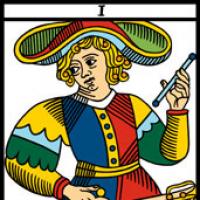Mesaĝoj: 386
Lingvo: English
T0dd (Montri la profilon) 2011-januaro-06 01:49:41
chicago1:It's not ours alone. Russians also tend to replace unstressed vowels with schwa, and I'm sure there are others. But there are also more than enough languages in which this is not done. Spanish is a good example. Many words end with 'a', and you can definitely hear that it's 'a'. There are sounds, or combinations of sounds, in Esperanto that are tricky for anglophones, but they vowels aren't among them. We just tend to be lazy about them.
(And as to the schwa comment by another reader: Interesting. And yes that's probably true of most English speakers. (At least me.) But is it really just our problem? Other speakers are more precise in voicing the final, unstressed syllable?)
Todd
JonathanOliveir (Montri la profilon) 2011-januaro-06 02:38:37
T0dd:Native English speakers have a very strong tendency to replace unstressed vowel sounds with "schwa".Native Brazilian Portuguese speakers tend to do that with unstressed final 'a' (as in saĝa) and final 'a' followed by '-s' and '-n' (as in 'trinkas' and 'warman'). No problem with words like 'la' and 'tra'. I've been practicing to avoid that.
marcuscf: The final unstressed u/a distinction is used very often in my language (Brazilian Portuguese), so it's easy to hear the difference and to pronounce clearly (at least in a way that another Brazilian could hear the difference ). Besides, u and a are very far apart from each other. However other endings are more likely to be merged in careless speak, specially the o/u pair.I agree with you on the final unstressed u/a distinction, but we actually make a u/schwa distinction most of the time. At least that's the case for most people I know, including myself. But I'm practicing, as I wrote above. You put it very well by writing "at least in a way that another Brazilian could hear the difference". Well done!

Another problem is that we tend to nasalise vowels before 'n' (eg. "pano", "teni", "kino", "bono", "luna") and 'm' (eg. "fama", "temi", "limo", "komo", "lumi"). And that is the case even if that 'm/n' is followed by another consonant; "tempo", "tendi" and "kampo" are some possible examples.
And yet another issue would be that we tend to pronounce final 's' like 'z', chiefly when the following word begins with a vowel sound or with a voiced consonant.
For example, "Mi trinkas akvon" is pronounced by many as "Mi trinkaz akvon". I came to realise that by listening to native Spanish speakers speaking Esperanto. They don't usually do that.
Jonathan

yugary (Montri la profilon) 2011-januaro-06 03:40:52
Personally, I'm very glad Esperanto has the "mal-" prefix. It saves a lot of memorization time and gives us yet another good tool for creating needed words on the fly when we're not sure if there's a separate word for something. For example, if you didn't know the word "pesimisma" but you did know "optimisma," you could say "maloptimisma" and be perfectly understood and grammatically correct too. I say, three cheers for "mal-"!
ceigered (Montri la profilon) 2011-januaro-06 07:44:33
yugary:Those of you who don't like the "mal-" words, please don't be offended, but your objection to them strikes me as strange. "Maldekstra" is a whole syllable longer than "dekstra," so it seems to me that it should be easily distinguishable from "dekstra" even in a noisy environment. English speakers don't have any trouble distinguishing "happy" from "unhappy" or "literate" from "illiterate" and the like. Once you get used to the "mal-" words, they just seem like any other word and don't strike you as weird combinations. After a while, "malgranda" just sounds like the word for "small" rather than "unbig."I must clarify - I don't hate them and think they should go away from the language. They're great. All mal-words are perfectly normal too. Like you said, English often does the same thing, as do many other languages in the world. However, in contemporary Esperanto, the mal- form is really the only form usable. Lets say someone mishears the mal- bit because it's not only pretty far from the stressed syllable but the rest of the word is practically the same as the word that means the exact opposite, in Esperanto, you are sort of limited in how you can work around that. Basically, it's just repeat the same word over again. Lets say we add this problem to a situation where it's important to make a distinction, coupled with some dodgy radio interference (* signifies distorted sounds that could represent anything):
Personally, I'm very glad Esperanto has the "mal-" prefix. It saves a lot of memorization time and gives us yet another good tool for creating needed words on the fly when we're not sure if there's a separate word for something. For example, if you didn't know the word "pesimisma" but you did know "optimisma," you could say "maloptimisma" and be perfectly understood and grammatically correct too. I say, three cheers for "mal-"!
A) "Iru m*a* *desktre!"
B) "Hm? M* n* pov* * kompr* *i vi*"
A) "Iru *al*desktre!"
- Now here, we have a situation where the person might understand or not understand depending on various conditions. E.g. did the misunderstand the first instruction so badly that they don't associated the "m*a*" with the "*al*" part? Etc -
Now, lets say we do this:
A) "Iru m*a* *dekstr*!"
B) "Hm? M* n* pov* * kompr* *i vi*"
A) "Iru *al*desktr*!"
B) "Ok*j mi ir*s ti*l!"
A) "aĥ NEEEE*, ir* l*ve"
B) "ho m* b*d*ŭr*s!"
- Here, we can have the speaker try and associate two very different words, so there's little chance of him misunderstand all attempts at saying "left" as "right" or something else, and there's no chance given the context of the dilapidated reproduction of "dekstr-" that "l*ve" stands for "washing" or "lifting".
The problem here is not with maldrekstre. It's fine. I use it despite how much it seems I'm picking on it. It's a love hate relationship. But, the problem is that, where as in other languages there is always the choice of a morphologically different word (e.g. good/bad, left/right), Esperantists don't really use the alternatives much. Thus, even if that person over the radio screamed "LIVE! LIVE! LIIIIIIIVEEEEEE! NE DEKSTRE!!!!!!!", the poor guy at the other end might be going "what's a "leeveigh?".
It's not like the language is seriously crippled and I don't wish to say that mal- forms are strange, unnatural or bad, but EO's strong preference to them I see as worrying.
And then there's the 1984 newspeak sapir-whorf effect, where there's no "bad", there's just "ungood", and to be un-anything is (ironically) undesirable. Sometimes I like "bad" to be "ungood" in my mind, and "evil" to be separate from "unholy", etc. As it stands I don't think "evil" has its own word in Esperanto, which thus means that evil can only be "invirtuous" or "ungood", a very morally black and white viewpoint.
pohli (Montri la profilon) 2011-januaro-06 12:12:39
ceigered:And then there's the 1984 newspeak sapir-whorf effect, where there's no "bad", there's just "ungood", and to be un-anything is (ironically) undesirable. Sometimes I like "bad" to be "ungood" in my mind, and "evil" to be separate from "unholy", etc. As it stands I don't think "evil" has its own word in Esperanto, which thus means that evil can only be "invirtuous" or "ungood", a very morally black and white viewpoint.How about "malica"? But be aware that it's not the opposite of "ica"

Regarding "kie(l)", "kia", "kio", "kiu": Yes, it is important to speak the vowels clearly. You would have to change many things in Esperanto to avoid this, like e. g. the -is, -as, -os and -us endings, which also sound almost the same spoken carelessly by a speaker with e. g. an English language background.
Someone already said that this is Esperanto and not English, and you just have to practice its pronunciation rules. Just like you cannot go and speak Chinese without tones just because your mother tongue hasn't got them, and then say the language is bad because you cannot distinguish between certain words.
If someone indeed uses the language differently, e. g. uses me instead of mi and kive instead of kie, I consider it a less radical change to also say mea and men instead of mia and min as well as tive and nenive instead of tie and nenie, because then at least things would stay regular. At first glance it is a smaller change to change fewer words. But the one radical change that essentially is proposed in changing only mi and kie is that irregularity is introduced, and that would be a really bad thing. But I don't know how Esperanto might develop in the future and if it might come to such irregularities by itself.
By the way, nobody will be bothered if you say MALdekstre instead of malDEKstre, even PMEG suggests it for making a clear difference. But "live" is ok with me, because it's just a new word and not a grammatical change. But you can't force people to use it or to ignore it.
marcuscf (Montri la profilon) 2011-januaro-06 13:16:10
JonathanOliveir:[OFF-Topic]
I agree with you on the final unstressed u/a distinction, but we actually make a u/schwa distinction most of the time. At least that's the case for most people I know, including myself. But I'm practicing, as I wrote above. You put it very well by writing "at least in a way that another Brazilian could hear the difference". Well done!
Jonathan
I've never been able to fully understand what a schwa /ə/ is.
Wikipedia ə says that it is "frequently used for almost any unstressed obscure vowel", even if rounded (as in French). So it does not help much.
/ə/ sounds like Brazilian â, but if Brazilian final unstressed a is /ə/ then what is the first a in "cama"? Ĉu /kəmə/, /kɐmə/, /kəmɐ/ or /kɐmɐ/? The fact that English dictionaries often substitute /ʌ/ for /ɐ/ does not help to clear up the confusion.
(too bad the interesting threads are in English rather than Esperanto...
 )
) Miland (Montri la profilon) 2011-januaro-06 13:53:22
marcuscf:I've never been able to fully understand what a schwa /ə/ is.Here's a Youtube video that may help.
sudanglo (Montri la profilon) 2011-januaro-06 15:43:50
The Esperantist priority is not any modifications of the language, but to create an army of competent speakers, so that the constant dismissive argument that 'nobody speaks it' no longer has any validity.
And as I have previously commented, I think the only way to do that is to sell it on the basis of its educational value rather than as a competitor to English on the international stage.
Incidentally, I think that it is not improbable to imagine a future in which Esperanto is the people's lingua franca alongside English which is employed for professional purposes by an educated elite.
On the tiny point of the intelligibility of 'maldekstra', I think that in practice this is almost always already pronounced with a clear secondary accent in situations where confusion might arise, and for the soldiers' 'left right' left right' marching instruction I am pretty sure I have seen 'Dekstr' mal, dekstr' mal. As regards 'evil', I think a case can be made for an extra root.
By and large, all the extra roots that have appeared in Esperanto over the last 100 years have done little to increase the learning load in comparison with the massive burden of acquiring mastery of national languages.
ceigered (Montri la profilon) 2011-januaro-06 17:10:40
(bertilow.com/pmeg/vortfarado/afiksoj/prefiksoj/mal.html I believe), there is a nice little list of these words with Bertilow's rating of how useful they really are, more or less (there are presumably more that he practically says should never be used):
- trista - often used (presumably because emotions aren't quite as symetrical as other thigns).
- kurta - often used enough and in kunmetitaj vortoj (example given, "kurtonda radio")
- frida - ditto to above, example given "fridujo"
- olda! - I was surprised to see it there, but he says "ne tute malofta" (I'd disagree, but a meznivela esperantisto probably doesn't deserve such authority)
- liva - only "iafoje uzata", but he points out how useful it can be
- dura - used enough, mostly with technical language
- lanta - "poezia", first I'd heard of it. It's not really an idismo either, since they have "lenta" (slightly better choice too, and Italic which Zam seems to have liked - I wonder how "lanta" was created)
- turpa* - ugly apparently. Rare.
- minca* - fat. also rare.
- dificila* - "uzata nur de ekstremistoj" I believe was his note, and that its users often didn't use any mal words at all.
I may have to reshape my opinions about the state of EO's mal-pairs, since it seems that most of those common ones seem to be either things that aren't properly represented on the opposite scale (like emotions) or useful opposite pairs, where as the least used ones are pretty much opinions. By my books that's actually pretty damn good. God knows what happened with olda and lanta though... And liva gets extra votes for being Slavic

sudanglo:And as I have previously commented, I think the only way to do that is to sell it on the basis of its educational value rather than as a competitor to English on the international stage.Half of the educational value is in what mental pathways the language opens up, so it can't be too bad examining the "spirit" and Sapir-Whorf effect the language has on its learners. Who knows, maybe we can exploit it and plant subliminal message bombs within the very grammar of the language... MWAHAHA!
chicago1 (Montri la profilon) 2011-januaro-06 23:41:35
Re: "Mal-":
I think Ceigered's posts really frame this up nicely. My apologies to all Eo purists, but I am just not going to say "maldekstra." Viva "liva"! . . . but with "mal" I guess fixtures and diagrams are made easy, right? One knob on your sink may be "V" for "varma" but just toss "M" for cold; right and left? "D" and, yes, there's that "M" again. . . . )
Re: "Kive" vs "kie" / "kiel" vs "kimel":
I like Pohli's comments above. Maybe it is a less radical change to just change the correlative for kive (if ever used) and kimel (if ever used) for all their derivations across the board.
BTW, on this particular point, since I first posted my old teacher's "suggestions" to start this thread, I've done an experiment speaking in Eo to two linguophile friends (lingvamantuloj?) of mine. One acquainted with Eo, the other less so - so we taught him some phrases. Even the more experienced Eo-ist faced challenges in both hearing and conveying kia vs kie (and even "kiel"), and kio vs kiu, on several occasions. (Yes, all were native English speakers and victimes of the "schwa"!) I know this was a non-scientific, and probably unfair, test of the language. But beginners are what we want, and I find myself a bit biased toward my old Prof's suggestion for clarity's sake. The only reason a beginner in Italian wouoldn't discern "que" from "dove" is because they haven't committed these to memory yet - not because they heard a syllable wrong.







